‘Big question’ is whether Rohingyas can go home: UN refugee chief
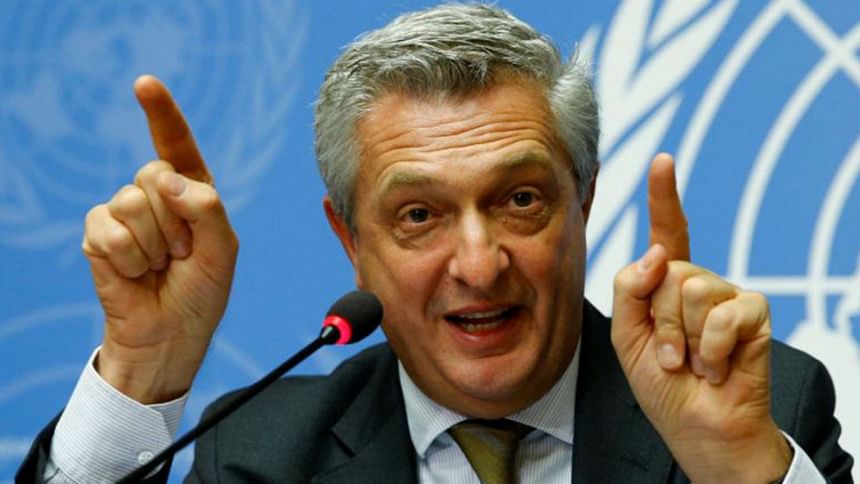
The United Nations refugee chief today said the "big question" regarding the up to 800,000 Rohingya refugees in Bangladesh was whether they would be allowed to return to their homeland.
Filippo Grandi, UN High Commissioner for Refugees, said he hoped to discuss the statelessness of Rohingya with Myanmar officials in Geneva next week but recognised it was a "very complex issue".
"It is very clear that the cause of this crisis is in Myanmar, but that the solution of this crisis also lies in Myanmar," Grandi told a news conference in Geneva on his return from Bangladesh.
He called on the Myanmar authorities to end the violence in northern Rakhine state so that solutions to the situation could then be discussed.
Some 480,000 Rohingya have fled northern Rakhine since Aug. 25 and accused the army of a campaign of violence that the UN has called "ethnic cleansing", following attacks by Rohingya insurgents on police posts. About 300,000 Rohingya had previously crossed into neighbouring Bangladesh.
A Myanmar minister was quoted as saying on Wednesday that the Yangon government will manage the redevelopment of villages torched during the violence in Rakhine state.
"Since it is most likely that return will take time, if it happens, if violence stops, it will be important also to find in the medium term suitable solutions for the people that are in Bangladesh," Grandi said.
He called for the Myanmar government to implement the recommendations of a commission led by former UN Secretary-General Kofi Annan. "The lack of citizenship for the Rohingya, this needs to be addressed and resolved," he said.
"Clearly if only the people with papers can go back, that will be a very small number if at all," he said.
"So I think that the exercise should go beyond that and should really determine, if that's what is needed, who is a national, and those people should be allowed to go back and be given that citizenship."
Grandi condemned violence by Rohingya insurgents, warning:
"It was also very obvious to me when I visited northern Rakhine that it is only a matter of time before terrorists would spring up from the situation of discrimination, of poverty, that prevailed in that area," he said.
"If the situation is not resolved, the risk of the spread of terrorist violence in the whole region - and this is a particularly fragile region - is very, very high."

 For all latest news, follow The Daily Star's Google News channel.
For all latest news, follow The Daily Star's Google News channel. 


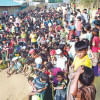
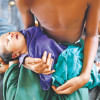
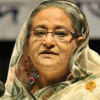
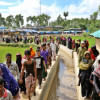


Comments